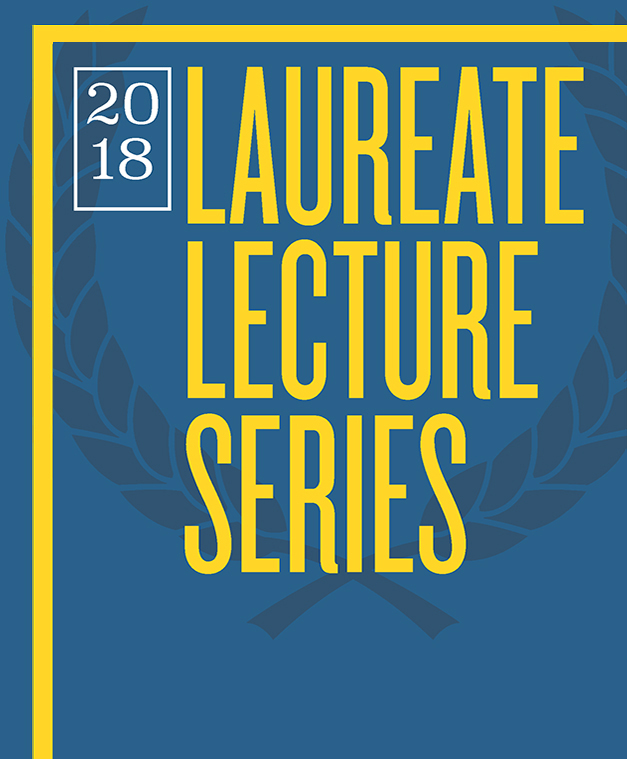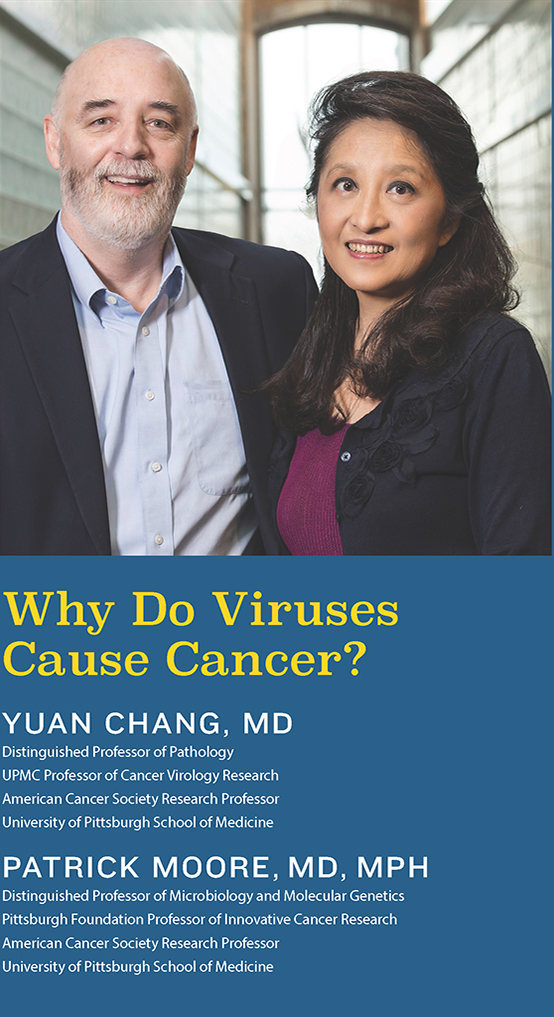Yuan Chang, MD, and Patrick Moore, MD, MPH, will deliver the next presentation in the 2018 Senior Vice Chancellor’s Laureate Lecture Series, a yearlong program featuring top biomedical researchers in their fields. Their presentation is titled “Why Do Viruses Cause Cancer?” and it begins at 4 p.m. on Thursday, November 8, in Scaife Hall, Lecture Room 6. [View on University calendar] Chang is Distinguished Professor of Pathology and the UPMC Professor of Cancer Virology Research. Moore is Distinguished Professor of Microbiology and Molecular Genetics and the Pittsburgh Foundation Professor of Innovative Cancer Research. This seminar series is open to the public, including all interested University of Pittsburgh and Carnegie Mellon University faculty, students, and staff. Arthur S. Levine, MD, Pitt’s senior vice chancellor for the health sciences and John and Gertrude Petersen Dean of Medicine, will introduce the speakers and lead the discussion following the lecture.
Currently, there are only seven viruses known to cause cancer in humans, but they are responsible for nearly 20 percent of cancers worldwide. The Chang and Moore laboratory discovered two of these seven oncoviruses: Kaposi’s sarcoma-associated herpesvirus (KSHV) and Merkel cell polyomavirus (MCV). KSHV causes Kaposi’s sarcoma, the most common AIDS-related cancer in the United States and the most common malignancy in parts of Africa. MCV causes a clinically aggressive skin cancer called Merkel cell carcinoma.
In their lab at UPMC Hillman Cancer Center, Chang and Moore lead studies of viral oncogenesis to further understand how these and other viruses turn healthy cells cancerous. In addition to investigating the biologic properties and molecular mechanisms of KSHV and MCV, they are also developing clinically useful assays to detect tumor virus infection and searching for potential KSHV vaccine targets. In their search for new tools to detect viruses, Chang and Moore led the development of digital transcriptome subtraction, the first nondirected mRNA sequencing approach to finding new human viruses. They continue to seek new ways to identify oncoviruses, including the use of high throughput genomics and proteomics.
Chang received her bachelor’s degree from Stanford University and her MD from the University of Utah. She completed an anatomic pathology residency at the University of California, San Francisco, and a neuropathology fellowship at Stanford. Moore earned his bachelor’s degree at Westminster College, his MD at the University of Utah, and his MPH at the University of California, Berkeley. After medical school, Moore served as an epidemic intelligence service officer with the Centers for Disease Control and Prevention and was a scholar at the Center for AIDS Prevention Studies.
Both Chang and Moore have been widely recognized for their scientific contributions. Each is an American Cancer Society Research Professor and has been elected to the National Academy of Sciences and the Association of American Physicians. Chang received the 2003 Paul Marks Prize for Cancer Research from Memorial Sloan Kettering Cancer Center. The pair jointly received the 2003 Charles S. Mott Award from the General Motors Cancer Research Foundation, the 2017 Passano Foundation Award, and the 2017 Paul Ehrlich and Ludwig Darmstaedter Prize.
|

















